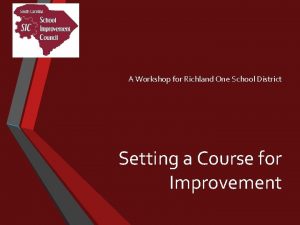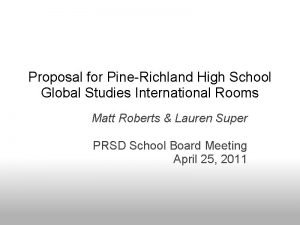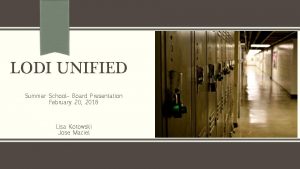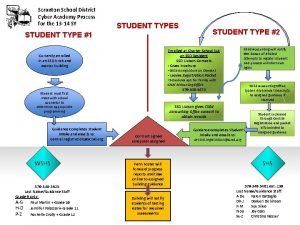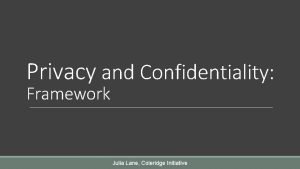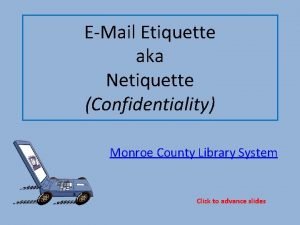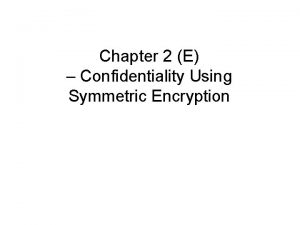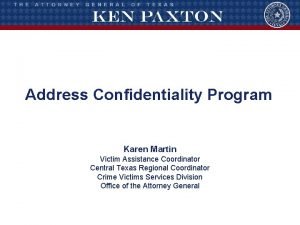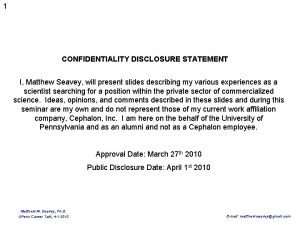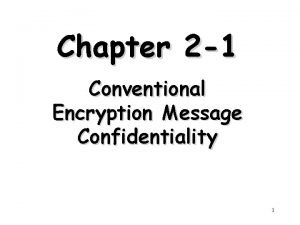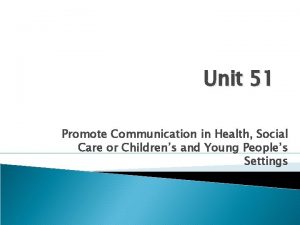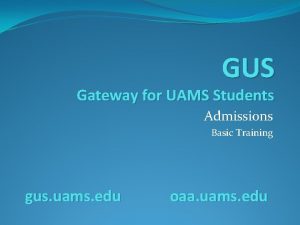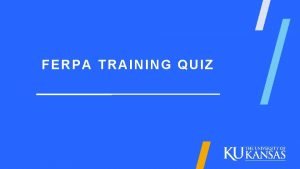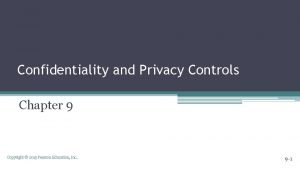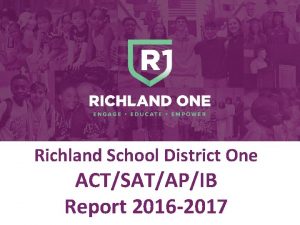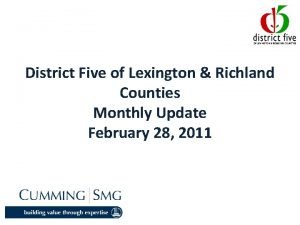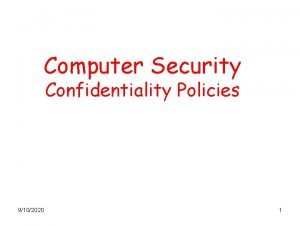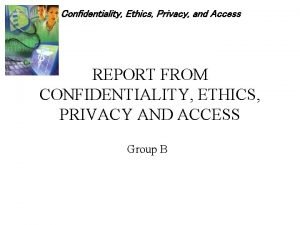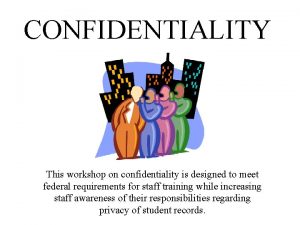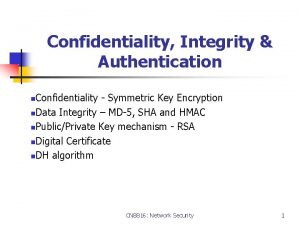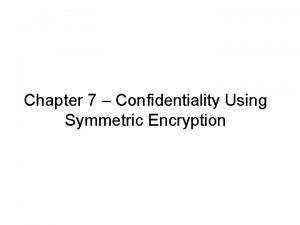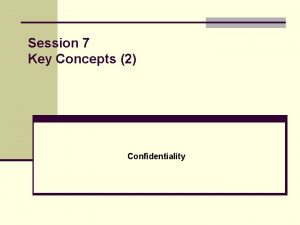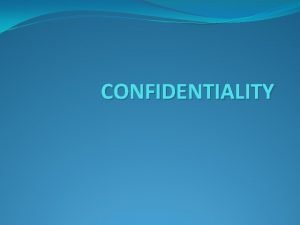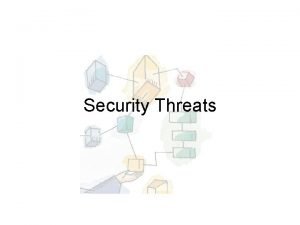Confidentiality 2011 2012 School Year Richland School District


















- Slides: 18

Confidentiality 2011 -2012 School Year Richland School District Two

You are a professional and information is often shared with you that is confidential. That information may include: • Medical Conditions • Disabilities • Test scores • Grades • 504 Status • Family Information

Litmus Test • Confidential information can only be shared with other professionals who have a legitimate educational interest.

Our most frequent lapses of confidentiality include: • Discussing information in the teachers’ lounge, at lunch, or in other public areas. • Forgetting about the students who surround us all the time. • Sharing information with outside agencies without permission.

Frequent Lapses • Giving explanations to parents which include another student in the class. • When frustrated, making a comment about a student’s personal information. • Calling Parents about a student while other students are in the room. • Holding meetings in part of the room when students are present.

Information We Have to Share! • Suspected Child abuse • Threats of harm to • • others or self (would include threats to run away if under age) Threats/Plans of Suicide Sexual harassment

How Teachers can Stay out of Hot Water! Before sharing confidential information ask the following questions: 1. Is there a legitimate educational or child safety/welfare reason to share this information? 2. Is this person legally entitled to this information without prior parent permission?

DO: • Only discuss a student during a closed door meeting with relevant staff. • Leave a confidential note to set a time to discuss sensitive matters. • Gently remind others about confidentiality by suggesting another time to talk. Try to move into a classroom and out of the hall.

DO: • Make sure confidential documents are properly stored. • Secure your computer so others cannot see sensitive material. • Talk privately with a student about personal matters.

DON’T: • Make a passing comment about a student in the hall. • Talk to another teacher about a student when other students are present. • Provide information to parents about any student. • Release psychoeducational evaluation information or caseload lists to anyone not on the district approved list. • Share information (verbal or written) with outside agencies without written parent permission.

Be careful what you EMAIL. . . • Don’t put in writing • what you don’t want to defend in court. Your emails may be subpoenaed so watch what you send to parents and teachers.

The District’s AUP for Computers The District’s Acceptable Use Policy for computers requires you to ensure the confidentiality of information in your possession.

Translation: • At you worksite: Confidential information is best protected when stored on your H Drive not on your C Drive nor Desktop. • It is a violation of District Policy to have confidential information on laptops, flash drives, portable hard drives, etc. that you take out of your classroom or office. • Your H Drive can be accessed outside your worksite so that you can work on files while not at your worksite.

Accessing your H Drive from Outside your Building 1) Go to the Staff Section at the District’s 2) 3) 4) Website Click the District Application Section Click the Netstorage button Login as you would at your school

Student Files: • Student files are confidential and should be kept in a secure location. • Student and employee files should not leave the school except for a legitimate educational reason such as a meeting in a different location. • Confidential files should never be left in a car or other unsecured location.

Subpoenas and Court Orders • If you receive a subpoena or a court order, contact your administrator ASAP. • We do not immediately turn over information that is subpoenaed. Your admin will contact Student Services for the procedure. • We do turn over court ordered information. Work with your admin who will contact Student Services.

REMEMBER!!!! • In this town, everybody • • knows everybody! The person you are talking to may be a friend of the family you are talking about. If things become adversarial, parents will often use breaches of confidentiality against staff.

Affirmation • I have read and understand the contents of this Power. Point. I understand that the Power. Point represents District Policy and that I agree to abide by these procedures. I also understand that if I am unclear about the contents of this Power. Point I will contact my administrator.
 Richland one school district
Richland one school district Lauren super pine richland
Lauren super pine richland Richland creek reservoir
Richland creek reservoir Lodi unified school district summer school
Lodi unified school district summer school Indian school, al wadi al kabir school district
Indian school, al wadi al kabir school district Scranton school district
Scranton school district Poem for primary school leavers
Poem for primary school leavers Why is confidentiality important
Why is confidentiality important Netiquette of confidentiality and respect
Netiquette of confidentiality and respect Confidentiality with symmetric encryption
Confidentiality with symmetric encryption Address confidentiality program texas
Address confidentiality program texas Confidentiality statement
Confidentiality statement Professional secrecy in medical ethics
Professional secrecy in medical ethics Conventional encryption and message confidentiality
Conventional encryption and message confidentiality Potential tension between maintaining confidentiality
Potential tension between maintaining confidentiality Uams confidentiality agreement
Uams confidentiality agreement Ferpa quiz answers
Ferpa quiz answers Confidentiality ethical principle
Confidentiality ethical principle Confidentiality and privacy controls
Confidentiality and privacy controls
